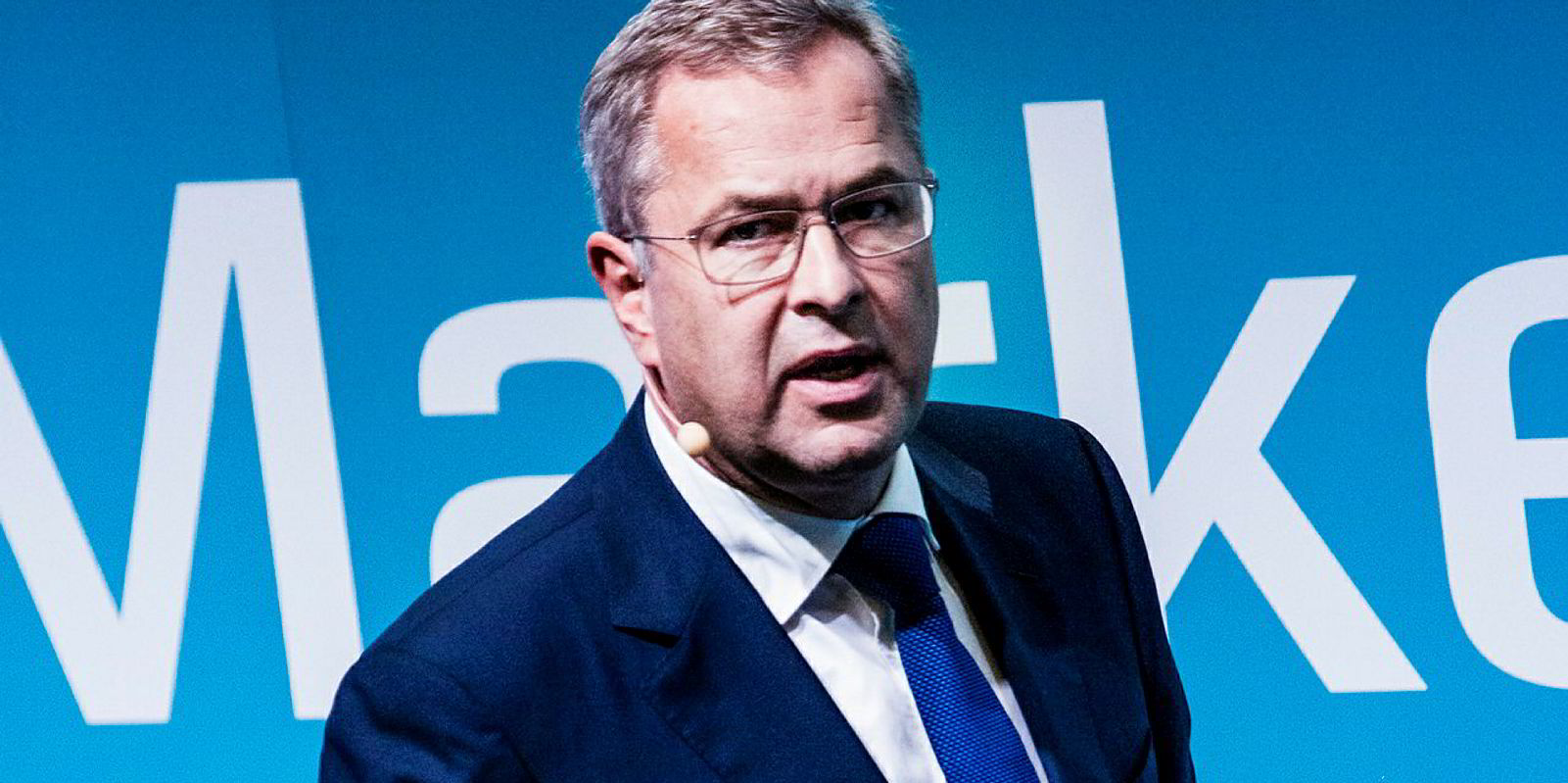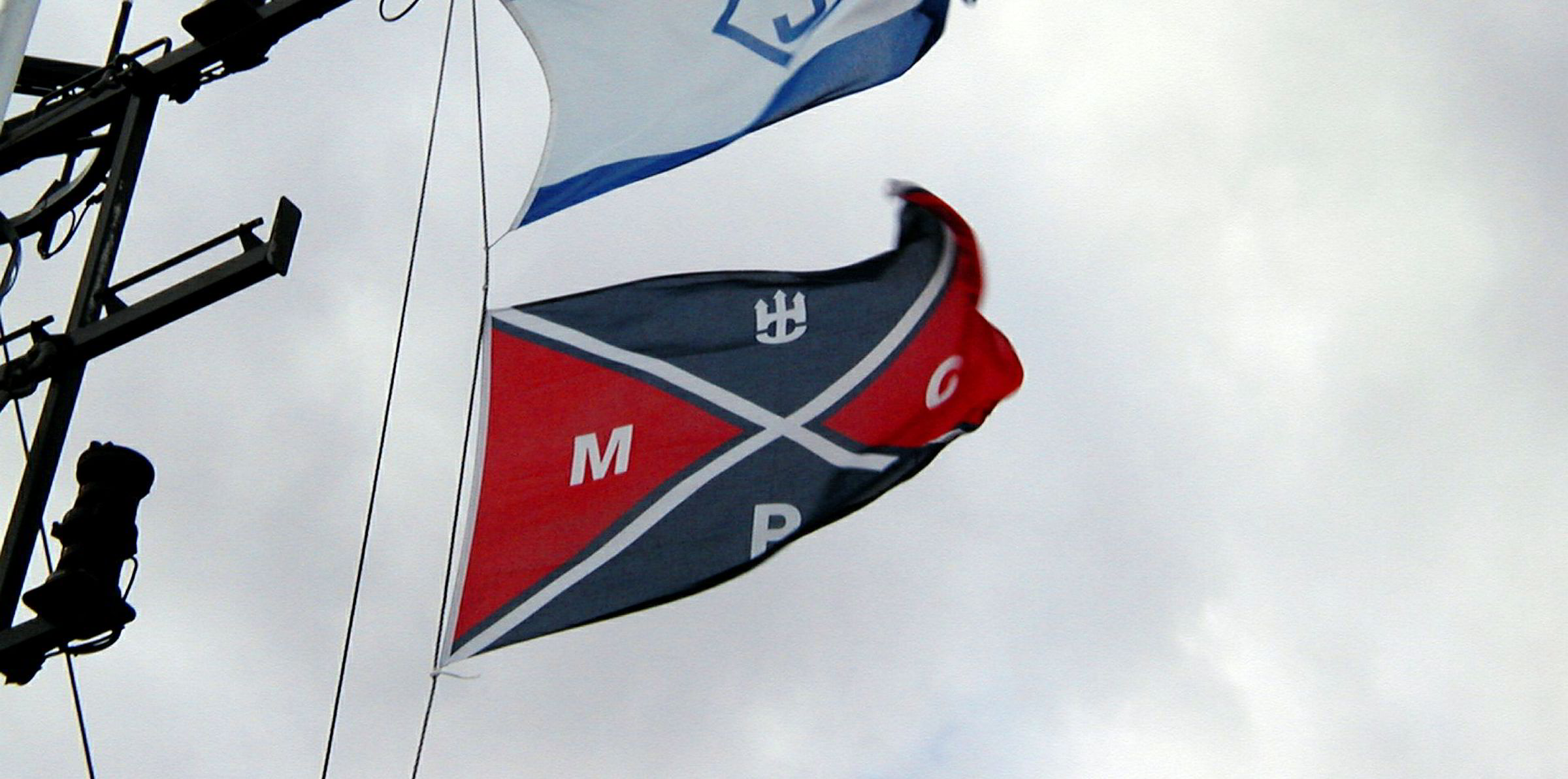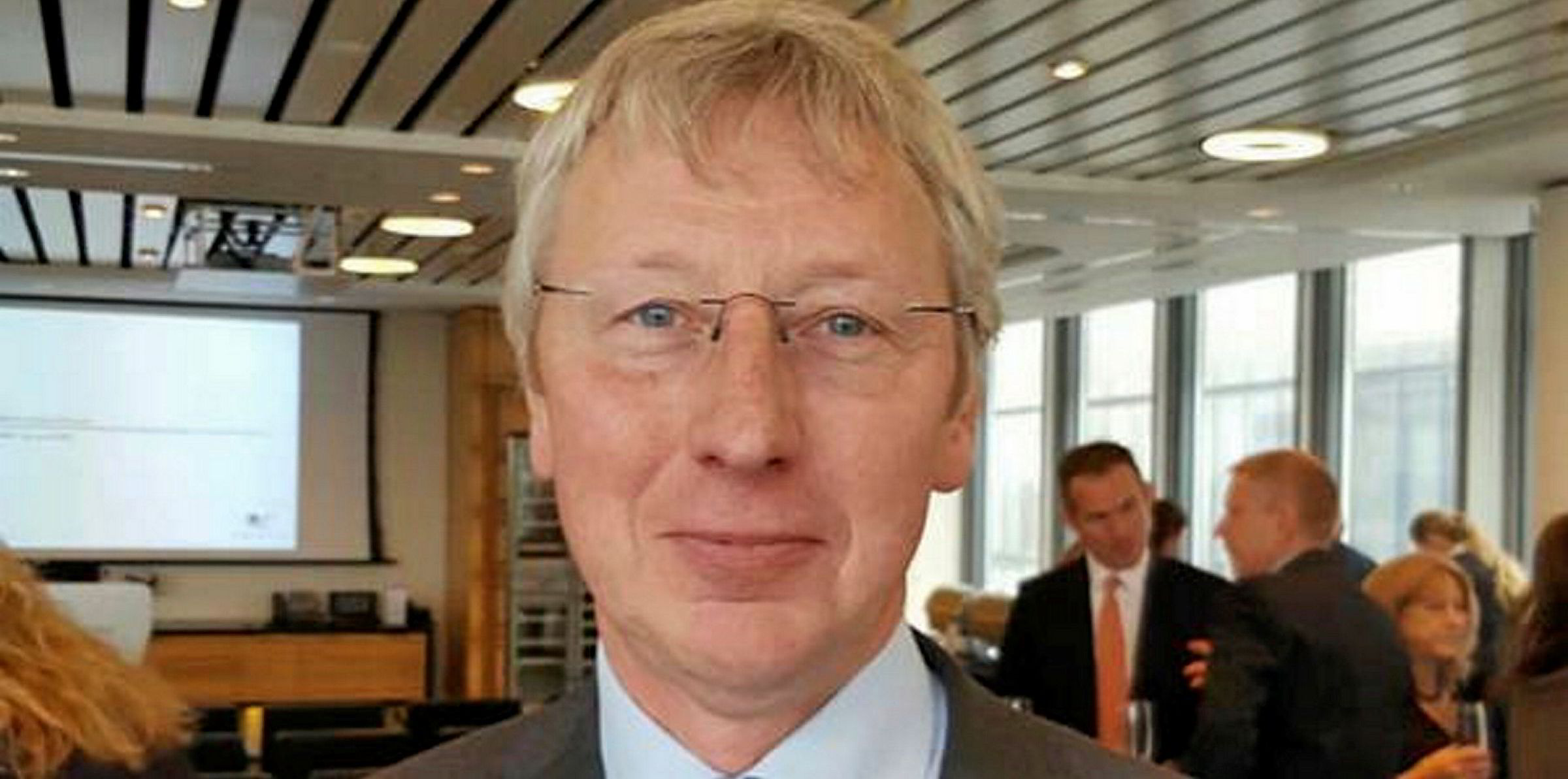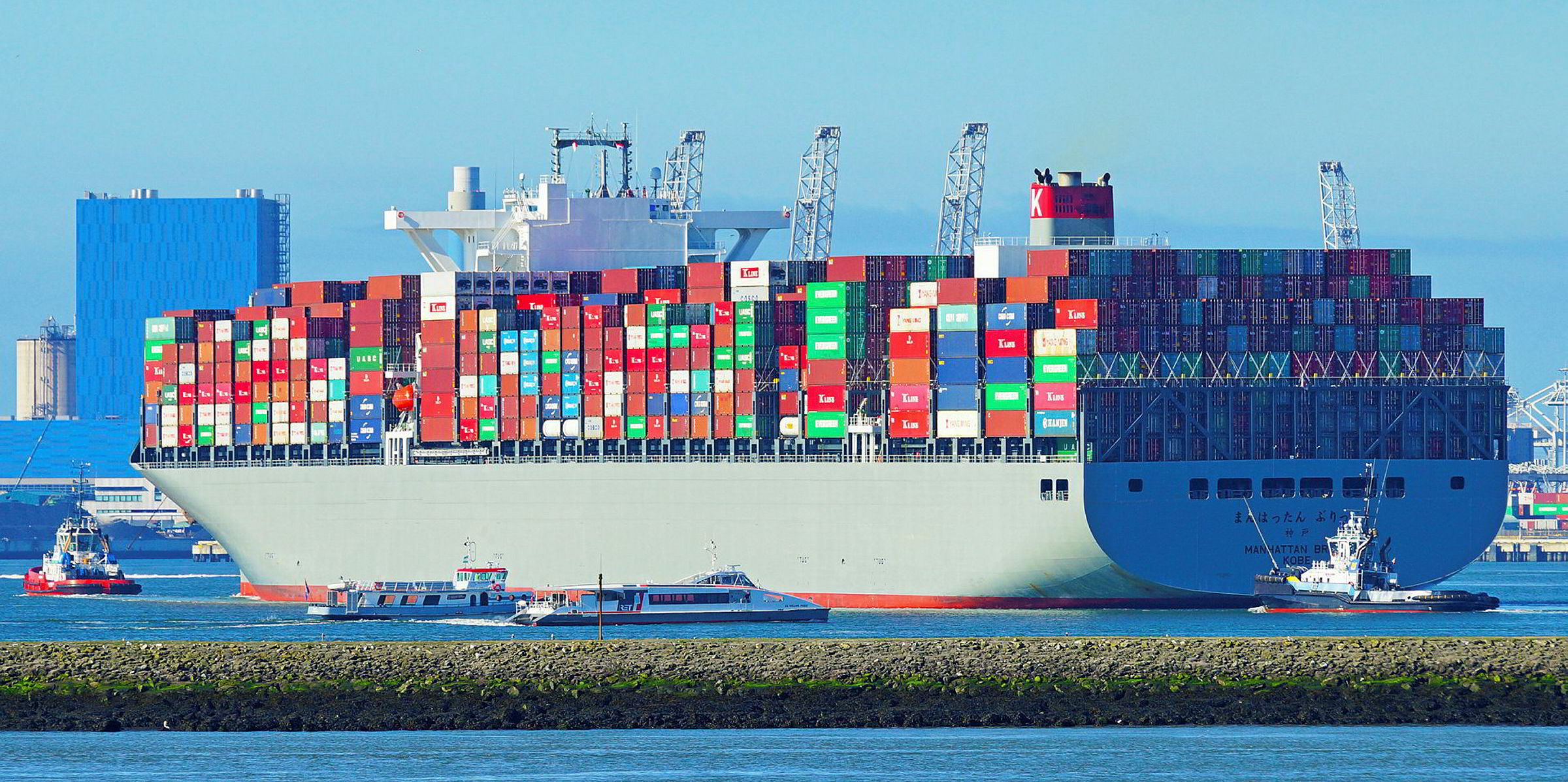Danish boxship and terminals giant AP Moller-Maersk will blank up to 140 sailings in the second quarter as it copes with the effects of the coronavirus crisis.
The shipowner and operator said the pandemic could cut volumes by between 20% and 25% across all its divisions in the current three months as lockdowns hit demand.
Maersk had made a financially strong start to the year before the disease struck.
The company managed to log a return to net profit in the first quarter, making $209m, compared to a loss of $656m a year ago, as revenue edged up to $9.57bn from $9.54bn.
The company has ditched its earnings forecast for 2020 due to the virus.
"Looking into the second quarter, visibility remains low as a result of the Covid-19 pandemic," chief executive Soren Skou said.
"We continue to support our customers in keeping their supply chains running; however as global demand continues to be significantly affected, we expect volumes in the second quarter to decrease across all businesses, possibly by as much as 20% to 25%."
He acknowledged that 2020 is a challenging year.
"But as we proactively respond to lower demands and show progress in our transformation and financial performance, we are strongly positioned to weather the storm," Skou said.
Meeting expectations
Fearnley Securities said Ebitda of $1.2bn was largely in line with expectations. This figure excludes a $300m gain from bunker hedges.
It said 140 blank sailings would be about 5% of capacity.
"All else equal this would suggest a marked downside to second quarter expectations ($1bn), drawing comparison to the 2016 earnings...of circa $0.4bn to $0.5bn," it added.
"However, present freight rates are about 10% higher than in 2016, or about $200 per feu."
This would offset 20% lower volumes, it added.
"Second quarter operating margins and the outlook for second half 2020 remain key for a recovery story in Maersk," Fearnley said.
"We continue to believe the timing is attractive, with the stock trading at all-time low metrics and with a balance sheet to sustain pretty much any rate environment." It has a buy rating on the stock.
Container demand growth turning negative
Demand for containers is expected to shrink over the whole year, whereas growth had previously been predicted at between 1% and 3%.
Maersk admitted that organic volume growth in its ocean shipping division, which runs its boxships, is expected to be "in line with or slightly lower than average market growth."
The division increased Ebitda 25% to $1.2bn in the first quarter, as its bunker fuel price compensation measures kicked in.
The ocean shipping unit also had a positive result from its "self-supply bunker strategy", as Maersk produced its own low sulphur fuel oil, as well as adjustments in capacity.
This mitigated lower volumes related to Covid-19.
More than 90 sailings were blanked in the period, however, leading to a decline of 3.5% in Maersk’s average deployed capacity.
The lockdowns have pushed down demand globally, but particularly in East-West trades, it said, and vessels have been idled.
"Close to 140 blanked sailings" are expected in the second quarter, it added.
These initiatives have led to significant cost reductions, however.
And the focus remains on tight capacity discipline.
Capex reduction planned
The group said steps had been taken to cut capital expenditure in the first quarter, and further reductions will be carried out in the remainder of the year. But it did not give further details.
Maersk has guided for a spend of between $3bn and $4bn over 2020 and 2021.
"The impact and span of the Covid-19 pandemic is difficult to predict, and business recovery is dependent on the time it takes to contain the spread and reopen the economies globally, as well as on the effectiveness of the fiscal stimuli from governments," the company added.
"The long-term effects will also depend on effective medicines and vaccines being developed."
Net interest-bearing debt was largely unchanged at $12bn, with liquidity reserves described as solid at $9.2bn.
The terminals and towage divisions recorded Ebitda of $276m, up from $269m in 2019.






